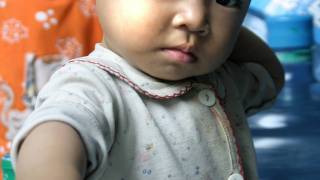Anti-Vaxxer’s Fall Into 4 Subgroups

New research from the University of Pittsburgh Center for Research on Media, Technology, and Health finds that anti-vaccination arguments on social media channels center on 4 distinct themes which can appeal to diverse audiences.
This Pitt research team found that anti-Vaxxers are clustered into 4 distinct subgroups:
- “trust,” which emphasized suspicion of the scientific community and concerns about personal liberty;
- “alternatives,” which focused on chemicals in vaccines and the use of homeopathic remedies instead of vaccination;
- “safety,” which focused on perceived risks and concerns about vaccination being immoral; and
- “conspiracy,” which suggested that the government and other entities hide information that this subgroup believes to be facts.
“If we dismiss anybody who has an opposing view, we’re giving up an opportunity to understand them and come to a common ground,” said senior author Brian Primack, M.D., Ph.D., director of Pitt’s Center for Research on Media, Technology, and Health, and dean of the Pitt Honors College.
Pitt graduate student Beth Hoffman, B.Sc., and the research team found that the majority of commenters on Facebook were mothers.
“The presence of these distinct subgroups cautions against a blanket approach to public health messages that encourage vaccination,” Hoffman said.
“For example, telling someone in the ‘trust’ subgroup that vaccines don’t cause autism may alienate them because that isn’t their concern, to begin with.”
“Instead, it may be more effective to find common ground and deliver tailored messages related to trust and the perception that mandatory vaccination threatens their ability to make decisions for their child,” said Hoffman.
In related news, on March 5, 2019, a new study published in The Annals of Internal Medicine offered strong arguments against a causal relation between Measles-Mumps-Rubella (MMR) vaccination and autism.
These researchers found no difference in the incidence rate of autism between MMR-vaccinated children and the non-vaccinated cohort in a large, multi-year study.
Additionally, this study reported the MMR vaccine did not increase the risk of developing autism in subgroups of children, such as those children who had autistic siblings or were considered to be at high-risk for autism.
Additional authors on this Pitt research are Kar-Hai Chu, Ph.D., Ariel Shensa, M.A., and Daria Williams, all of Pitt; and Chad Hermann, Ph.D., of Kids Plus Pediatrics. All funding to perform this analysis was provided by Pitt. No conflicts of interest were disclosed.
Our Trust Standards: Medical Advisory Committee


























